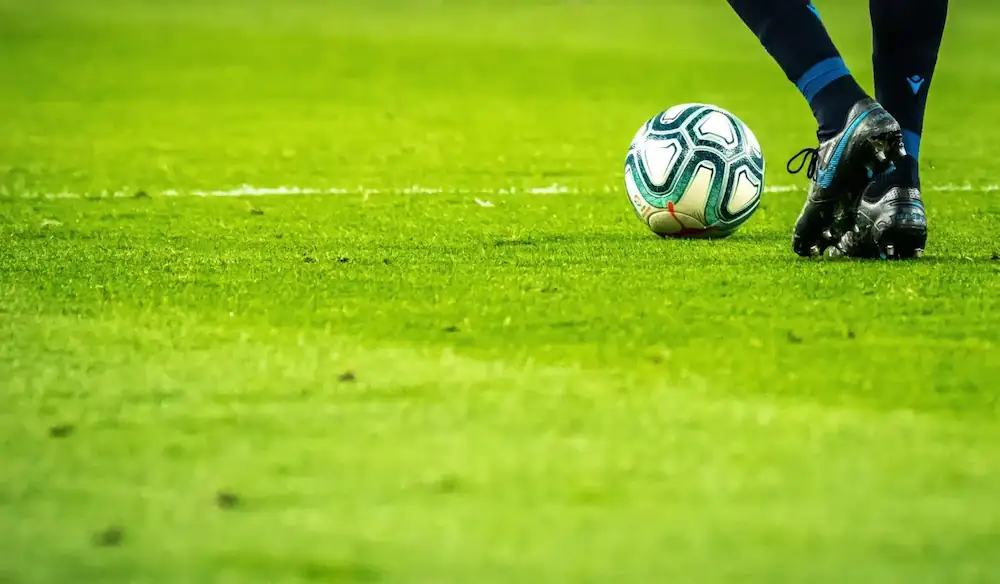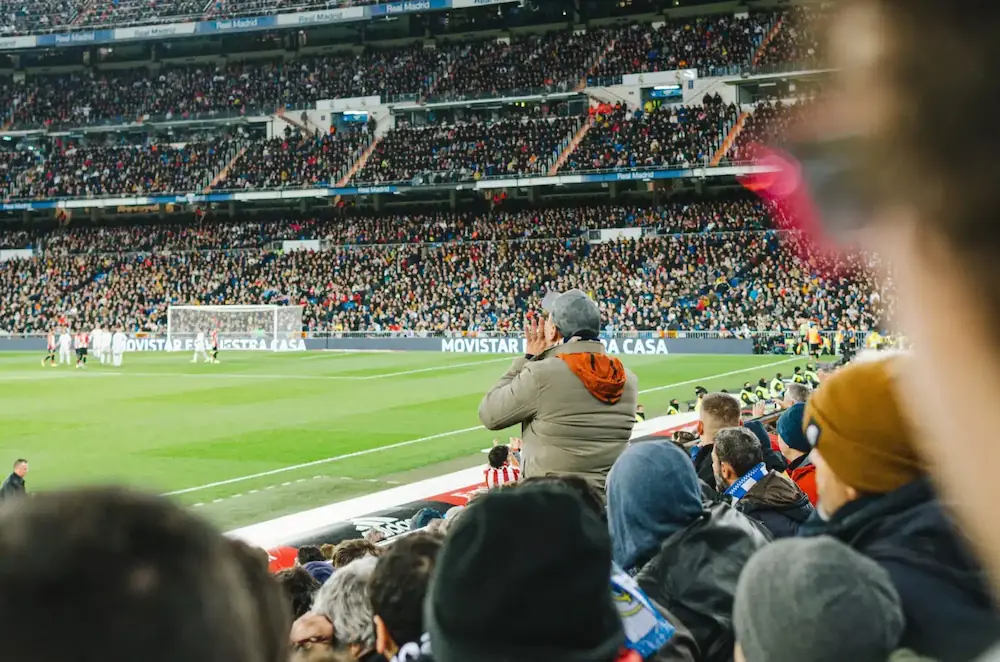Many soccer fans can well remember the year 2010. Especially fans of the Ghanaian national team. It is July 2, 2010 – World Cup quarter final – Ghana vs Uruguay. Handball in the 120th minute, the score is 1:1, until then a fairly even game. Suarez sacrifices himself for the team, plays the last man and is sent off as a consequence. Asamoah Gyan grabs the ball, Ghanaian fans are already enthusiastically celebrating with victory dances in the stands. Ghana is not only on the verge of advancing to the semifinals, but also of making World Cup history. Never before has an African team made it to the semifinals. In turn, Uruguayan supporters already have their vuvuzelas ready to whistle, the stadium shakes. The pressure is on for Asamoah. It’s about to happen: He hits the crossbar. The referee has already blown his whistle and the game goes to the crucial penalty shootout. Even without Suarez, Uruguay keep their cool and advance to the semifinals with a 4:2 win. But how did a situation that seemed so secure end so badly for Ghana in the end? Can players be better prepared for these conditions? We will discuss this and much more in this blog.
Physiological and psychological processes in pressure situations
What exactly happens in pressure situations like these? What do we feel? In a pressure situation, there is often a strong physiological arousal, which is noticeable, among other things, by strong heart palpitations, accelerated breathing, sweating, trembling and/or discomfort. The reason for this is the release of certain hormones that trigger the reactions described. Physiological arousal is not negative in itself. It reflects that something is important to us. In the 2010 World Cup quarterfinals, however, it seemed that the Uruguayan players were better adapted to the aforementioned external conditions, so that they were able to confidently score the penalties. That athletes fail in pressure situations is nothing spectacular. It often happens that they lose the ability to perform at their best in such situations (“choking under pressure”). Thoughts about the consequences of failure are difficult to suppress. It must therefore be possible to block out external conditions as much as possible.
The ability to focus on certain features of a task and suppress reactions to irrelevant features is called “selective attention”. Fun Fact: The auditory system is capable of perceiving up to 20 signals per second as individual sounds. The ability to tune out the outside influences of the stadium and focus on the upcoming penalty kick to score with confidence does not come naturally. The good news is that selective attention is neither hereditary nor innate; it can be trained.

From simulation to reality
One of the most important goals of coaches is to create as few discrepancies as possible between the training performance and the performance on matchdays of their players. Is there even the possibility of creating conditions similar to the competitive situation outside of competition? The Tampa Bay Buccaneers have shown us how it works: A few days before Super Bowl LV, they used large speakers to sound their players during practice sessions to simulate the volume of 25,000 viewers in the stadium. The goal was to make the training as similar to competition as possible to prepare both players and coaches for this situation regarding communication problems that could occur in it. The result was a 31-9 victory over the Kansas City Chiefs. In doing so, the Buccaneers provided a very good example that competitive conditions can be simulated (at least in part).
Ellis and Ward also provided important input with their study last year, using a high-pressure protocol to place penalty kickers in game-like pressure situations in their experiment. In total, the protocol included six stressors, one of which was playing stadium sounds through headphones. The participants experienced drops in performance during penalty kicks, felt distracted, and reported being exposed to increased emotional pressure. Therefore, the authors recommend that coaches consider the psychological effects of pressure and limited attention when designing their training methods for penalty kick situations. Also, it seems useful to find further methods to design training sessions as close to the game as possible. After all, successfully preparing players for such situations could literally be game-changing.
“We try to prepare our team to embrace playing on the road”
How athletes respond to pressure situations like stadium noise is a function of personality. Some athletes just seem to have the ability to rise to the occasion in those anxious moments.
How can a player combat the negative effects of crowd noise and pressure? Performance psychologist of some NFL teams Dr. Weigand encourages his athletes to limit the effects of crowd noise for the away team. One of the keys is practicing under these distracting, disruptive conditions. In practice, teams like the Buccaneers can use loud noise and then develop coping strategies like hand signals, snap counts and game boards.
But in addition to preparing to deal with the noise, it’s also about psychological preparation. “We try to prepare our team to play away from home,” Dr. Weigand says, “to embrace the crowd noise and use it as an advantage – to interpret it as them cheering you on, not against you.” So you have to train yourself to interpret the noise as something relieving. That kind of mental stamina isn’t easy to learn, of course, but training under those conditions better prepares teams and athletes to handle some game situations. “Make the training as competitive as possible so that the competition is as competitive as possible,” he advises.
Effects of using sounds on athlete performance
A study by Pizzera et al. (2017) showed that introducing sounds used to modulate tempo in hurdlers led to short- and long-term increases in performance and technique. Also, by using crowd sounds during the Tampa Bay Buccaneers’ practice and subsequent Super Bowl victory, it can be concluded that using sounds can definitely carry positive effects on athletes’ performance. Furthermore, it can be trained how to deal with game conditions, such as stadium sounds, by simulating them during training.

Outlook
So what would have happened if Asamoah had already practiced the moment of the decisive penalty kick with a comparable acoustic setting during practice? We will never be able to answer this question. However, study and practical results show that athletes can be better prepared for such situations in the future. This is where we come into play with our live communication system for sports: With our technology, we want to optimize training by enabling the coaching team to play countless tones & sounds in addition to live communication. This way, competition situations can be simulated or training content can be better internalized (e.g. through a pressing clock). This allows players to better adapt to real game conditions and improve their performance in the long term. This feature will become available in an update after the first release. If you want to stay up-to-date on this topic, follow us on Facebook, Instagram, LinkedIn and YouTube.
Sources
Louise Ellis & Paul Ward (2022). The effect of a high-pressure protocol on penalty shooting performance, psychological, and psychophysiological response in professional football: A mixed methods study, Journal of Sports Sciences, 40:1, 3-15, DOI: 10.1080/02640414.2021.1957344
Pizzera, Alexandra & Hohmann, Tanja & Streese, Lukas & Habbig, Anja & Raab, Markus (2017). Long-term effects of acoustic reference training (ART). European Journal of Sport Science. 17. 1-10. 10.1080/17461391.2017.1381767.